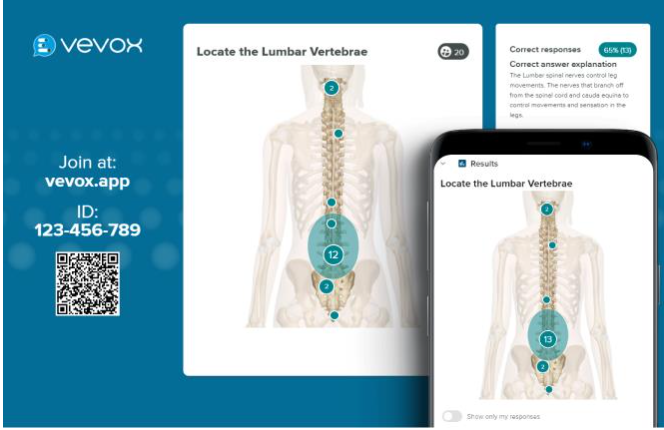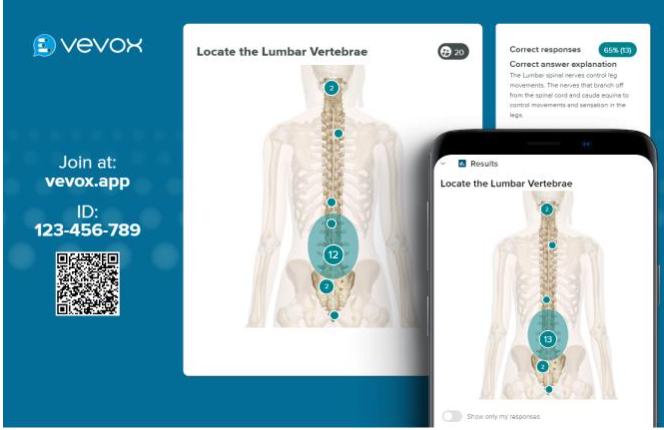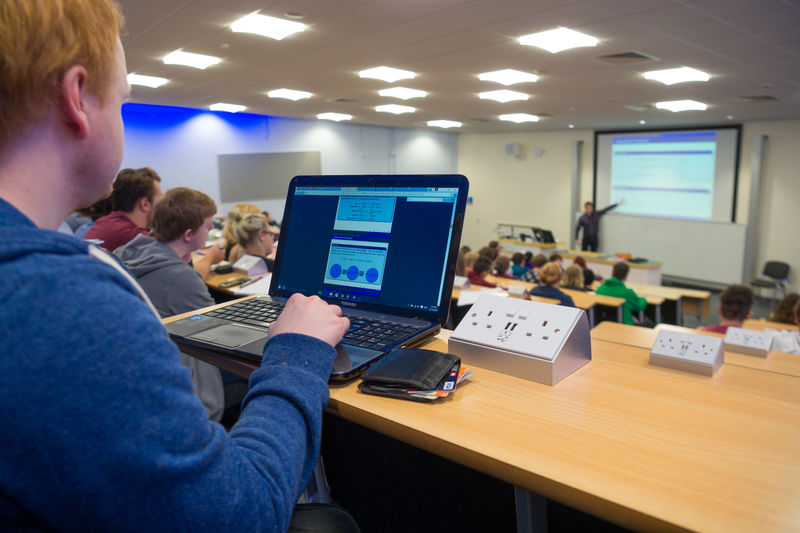Vevox, the University’s preferred polling solution, has some great new features from its September 2024 and December 2024 release.
For colleagues unfamiliar with Vevox, it can be used to make your teaching more interactive, and to help decision making in meetings. Participants use mobile devices to engage in real-time polling, but there are also options for asynchronous Surveys and Q & A boards.
All these updates are available on this YouTube recording and via these release notes:
1. Q and A labels
Session hosts can define labels that are now visible and usable by participants. This means that participants can optionally tag their Q&A messages with a pre-defined label. For example, you may wish to have a label for Assessment to allow students to link their questions to a tag.
2. Compare poll results in your session
This is a useful activity to measure the impact of a teaching session. Ask students one question at the start of the session to gauge their level of understanding and then ask them the same question at the end of the session to see if their understanding has changed. See the Vevox update for instructions on how to achieve this.
3. Downvoting options
By default, the Q and A board allows participants to upvote questions. This means that you can order questions by those which the majority of participants want to ask. Vevox has introduced a Downvote setting which you can toggle on to allow your participants to downvote questions. You can change these settings in the Q and A setting interface.
4. Alternate result display
Responses to MCQ poll questions can now be displayed in different ways. You can use the traditional bar graph but you can now choose to display your output as a pie chart. You can change the view in real time by having the Vevox admin panel open on one screen in the lecture and having the presenter window projected.
5. Number cloud question release
The number type poll now gives instructors the option to display how the output is shown with a new Word Cloud style interface. You can choose to have this as an output from the poll question interface.
6. Text walls formatting
Results for the answer style question now show in a more streamlined fashion when publishing the results. Rather than showing the output in full, the first couple of sentences display. The instructor can click on the comments they want to highlight and it will show the full response.
7. PowerPoint real time results
The PowerPoint integration has been updated to be able to show WordCloud, Pie Chart, and Number Cloud results live. Further information on using the Vevox PowerPoint integration is available on their webpage.
8. Rich text options for question formatting
Bold, italics and underline are now options in the question formatting.
9. Attendance tracking
For identified polling, you can run attendance information from the data reports. You can then see when participants joined the session and let the session.
10. Custom profanity filters
As account administrators, we can add words to the custom profanity filter. This will be applied to polls, surveys, and q and a features. If you have a word that you would like included in the profanity filter, please contact elearning@aber.ac.uk.
Further information and support is available on our webpages: Polling Tool : Information Services , Aberystwyth University.
Previous updates and case studies are available on our blog.







